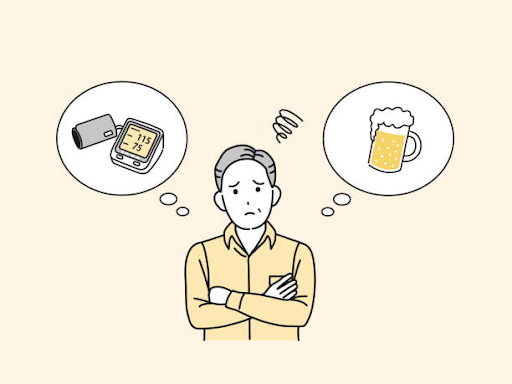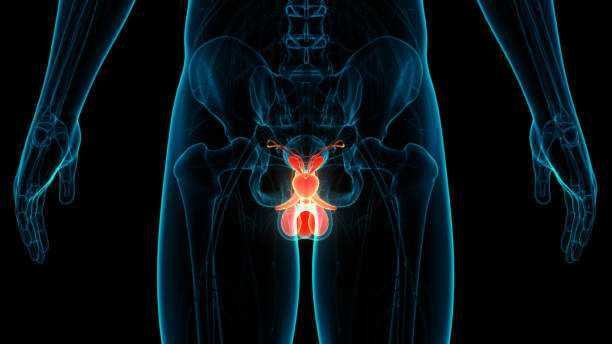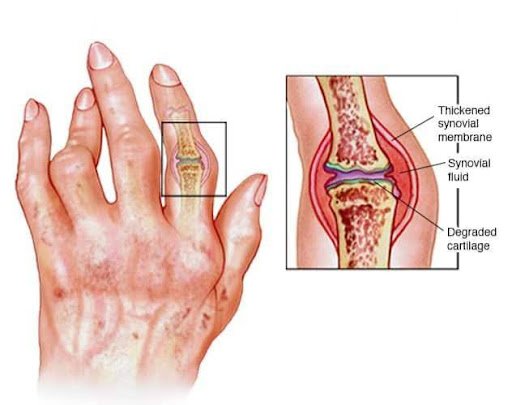Men’s Health: 12 Tips to Keep Yourself Fit and Healthy for a Whole Year!
What better time to discuss the subject of health than right now? Well, wherever you are in the world, health talks or health-related discussions are always very vital; because, we all are entitled to just one body per lifetime, and what you do with your body contributed to your health or otherwise. Therefore, we, at Enthusiast Express are committed to providing you with relevant information and insights to keep your health-life up-to-date, 24 hours, 12 months a year!

Perhaps, 2024 goals have been set rolling already as planned. You’re travelling from place to place, enjoying massive success and breakthroughs in your endeavors. This means, you’re going to be tasking your body with so many functionalities this year. This then means, you cannot afford to skip subjects of health if you’re going to enjoy a lasting success in your endeavors.
Especially for our African brothers and Daddies, who face unique health challenges, taking proactive steps towards a healthy lifestyle is crucial. According to recent research, embracing healthy living not only enhances the quality of life but also significantly reduces the risk of various health issues.
In this blog post, we’ll delve into the imperative need for men to prioritize their health, the repercussions of neglecting it, and then we also provided 12 comprehensive professional tips for a healthy and fit life throughout the year.
Now, let’s take the ride!
Download this Ultimate Guide now and take control over your Sexual Life.

Chapters
Why You Must Pay Attention to Your Health in 2024?
1. Increased Longevity:
Before now, healthy living has always been linked with long life. Although there are several factors that comes to play regarding long life, however, studies have proven several times that adopting a healthy lifestyle can contribute to a longer life expectancy. Therefore, African men especially, need to key into the supplies of healthy living to elevate their tenure on earth.
2. Enhanced Productivity:
Good health translates to increased productivity; I can say that with the loudest mic on any stage! Healthy individuals are better equipped to handle daily challenges, both at work and in personal life, leading to improved overall well-being. So, if not for anything, you must pay attention to your health to enhance productivity—and it starts daily.
3. Reduced Healthcare Costs:
You’ve probably heard countless times that, “prevention is better than cure!” Yet, for most people, they settle for the cure rather than invest in good health first! By investing in a healthy lifestyle, you can significantly reduce the financial burden associated with medical expenses. Regular exercise and a balanced diet, among several others, can prevent many health issues.
4. Mental Health Benefits:
Our mental health is as important as the physical health. Embracing a healthy lifestyle helps in reducing stress, anxiety, and depression, providing a holistic approach to well-being. The mind needs to be in good health to be able to access the right information and process it into valuable insights that will transform our world. So, once again, invest in your health!
5. Improved Quality of Life:
Think of your health as a tree than is has many branches connected to it; it feeds the and branches with nourishment and also provide comfort (shade) for objects that stays under it. That’s it! In many ways, a healthy lifestyle contributes to a higher quality of life. It enables you to engage in activities you enjoy, fosters better relationships, and ensures an overall sense of fulfillment.

Dangers of Poor Health Management for African Men:
In Africa, there’s a damaging mindset that limits people, especially health-wisely. It’s the habit of careless living that implicates the health, which eventually causes people to have to spend so much to restore the lost health. Below are the top six (6) risks of leaving your health to chance.
1. High Prevalence of Hypertension:
African men face a disproportionately high risk of hypertension, a condition characterized by elevated blood pressure. The consequences of uncontrolled hypertension are severe, it leads to an increased risk of heart disease, stroke, and kidney failure.
The prevalence of hypertension in Africa is often attributed to genetic factors, dietary choices, and lifestyle habits. Ignoring regular blood pressure check-ups and failing to adopt a heart-healthy lifestyle can increase this risk.

2. Increased Diabetes Rates:
Studies have revealed that the greatest factor behind the rising cases of diabetes among African men is simply poor attention to health management. It was found that unhealthy dietary habits, lack of physical activity, and genetic predispositions are the largest contributors to the higher prevalence.
Diabetes can lead to complications such as cardiovascular disease, kidney failure, and nerve damage. These risks can’t be scarier than this.
3. Prostate Health Concerns:
Prostate issues, including prostate cancer, are more prevalent in African men compared to other ethnic groups. Well, it’s almost not a surprise anymore. African has been defined as an environment where anything goes—there’s usually an open violation of health rules.
If you ignore symptoms such as frequent urination, difficulty in starting or stopping urination, and blood in the urine, it can lead to delayed diagnosis and treatment. Regular prostate screenings, especially after the age of 50, are essential for early detection and improved outcomes.
4. Limited Access to Healthcare:
In many African countries, limited access to healthcare facilities poses a significant challenge. This obstacle prevents timely medical interventions, which often lead to the progression of various health conditions.
It’s very important therefore, for African men to advocate for improved healthcare infrastructure and utilize available resources for regular check-ups and preventive care.
5. Cultural Stigma:
Cultural attitudes towards mental health often result in a reluctance to seek help. African societies may stigmatize mental health issues, associating them with weakness. This stigma prevents men from addressing and managing stress, anxiety, and depression effectively.
6. Limited Awareness:
Although in this information age, lack of awareness should not be an excuse anymore. However, it still is! Shocked? Yea!
Lack of awareness about preventive measures and early symptoms of diseases is a significant danger. African men may not be fully informed about the importance of regular screenings and adopting healthy lifestyle choices.
It’s expedient to continue raising awareness through community education programs, healthcare campaigns, and accessible information is vital to empower men to take control of their health.

Why Do Some Men Risk Their Health?
It’s shocking to know that even after many years of teaching and revealing the dangers of poor health management, there are still several challenges that results from health-abuse. And, for even Africa is not spared in these statistics Here are some of them.
1. Busy Lifestyles:
Surprised? Yea. Many men are too busy to attend to their own health, often leaving that until there’s an obvious diagnose of some health-related challenge in their body.
Demanding work schedules, familial responsibilities, and societal pressures are usually the excuses men give for investing little time for self-care.
Men, in their pursuit of career success or meeting familial expectations, may neglect crucial aspects of their health, including regular exercise, adequate sleep, and preventive healthcare measures.
2. Societal Expectations and Gender Norms, and Fear of Stigma:
Traditional gender roles often discourage men from expressing vulnerability or seeking help.
The societal expectation that men should be stoic and self-reliant can lead to a reluctance to address health concerns openly. It may result in delayed medical attention and a higher likelihood of health issues progressing to more severe stages.
Men fear being labelled as weak or incapable if they acknowledge mental health struggles. This fear of societal judgment can deter them from seeking professional help or confiding in friends and family, exacerbating mental health challenges.
3. Unhealthy Coping Mechanisms:
Some men, after realizing the poor state of their health, would rather resort to unhealthy coping mechanisms, such as excessive alcohol consumption, smoking, or substance abuse, to deal with stress or emotional challenges.
These behaviours provide temporary relief but pose long-term risks to physical and mental health, creating a cycle of self-destructive habits.

How to Reduce the Risk of Heart Disease and Cancer:
For Heart Disease:
- Regular Exercise: Engage in at least 150 minutes of moderate-intensity aerobic exercise per week, coupled with strength training exercises. Physical activity helps maintain a healthy weight, lowers blood pressure, and improves cardiovascular health.
- Heart-Healthy Diet: Prioritize a diet rich in fruits, vegetables, whole grains, and lean proteins. Limit saturated and trans fats, cholesterol, and sodium. A heart-healthy diet supports optimal cholesterol levels and reduces the risk of atherosclerosis.
- Maintain a Healthy Weight: Obesity is a significant risk factor for heart disease. Achieve and maintain a healthy weight through a combination of regular exercise and a balanced diet. This reduces strain on the heart and lowers the risk of developing cardiovascular issues.
- Quit Smoking: Smoking is a leading cause of heart disease. Quitting smoking improves cardiovascular health, reduces blood pressure, and enhances overall well-being. Seek support from healthcare professionals or support groups to quit successfully.
- Manage Stress: Chronic stress contributes to heart disease. Practice stress-reducing techniques such as meditation, deep breathing exercises, and mindfulness. Prioritize activities that promote relaxation to mitigate the impact of stress on heart health.
For Cancer:
- Regular Screenings: Early detection is key in cancer prevention. Schedule regular screenings based on age, family history, and risk factors. For prostate cancer, discuss screening options with a healthcare provider, and for lung cancer, consider screenings if you are at high risk, such as being a smoker.
- Balanced Diet: Adopt a diet rich in antioxidants, vitamins, and minerals. Fruits, vegetables, and whole grains provide essential nutrients that support the body‘s ability to fight cancer. Limit processed foods, red meat, and sugary drinks.
 Photo Credit: depositphotos.com
Photo Credit: depositphotos.com - Limit Alcohol Consumption: Excessive alcohol intake is associated with an increased risk of certain cancers, including liver and oesophageal cancer. If you choose to drink, do so in moderation – for example, up to one drink per day for women and up to two drinks per day for men.
- Physical Activity: Regular exercise is linked to a lower risk of various cancers. Aim for at least 150 minutes of moderate-intensity aerobic activity per week, complemented by muscle-strengthening activities. Exercise helps regulate hormones and supports the immune system.
- Sun Protection: For skin cancer prevention, protect your skin from harmful UV rays. Use sunscreen with a high SPF, wear protective clothing, and avoid excessive sun exposure, especially during peak hours. Regular skin checks can also aid in early detection.
The Top 12 Health Tips to Enjoy Maximum Health Throughout the Year:
Having exposed the prevailing factors behind the deteriorating health conditions in men, let’s now delve into how the remedy the situation. We have prepared 12 doses to digest to solve this challenge
1. Regular Exercise:
Make exercise a part of your routine by finding activities you enjoy. This could include brisk walking, cycling, swimming, or even dancing.
Create a workout schedule, and consider incorporating strength training exercises at least twice a week. If time is a constraint, break workouts into shorter sessions throughout the day.
2. Balanced Diet:
Plan meals that include a variety of colourful fruits, vegetables, whole grains, and lean proteins. Experiment with different cooking methods to enhance flavours without relying on excessive oils or salts.
Consider meal prepping for the week to ensure healthier food choices and avoid last-minute temptations.
3. Adequate Hydration:
It’s okay to o always carry a re-usable water bottle and set a goal for daily water intake. Flavour water with natural additives like cucumber or mint to make it more enticing. Limit sugary drinks and swap them out for herbal teas or infused water.
4. Regular Check-ups:
Schedule regular health check-ups at the beginning of the year and mark them on your calendar. Use healthcare apps to set reminders for screenings and vaccinations. Keep a health journal to track any symptoms or concerns between appointments.
5. Adequate Sleep:
Establish a bedtime routine by dimming lights and avoiding screens before sleep. Invest in a comfortable mattress and pillows. Create a calming sleep environment and consider practicing relaxation techniques, such as deep breathing or gentle stretching, before bedtime.
6. Manage Stress:
Identify stress triggers and implement stress-reducing activities into your daily routine. This could involve taking short breaks during the day for deep breathing exercises, practicing mindfulness or yoga, or engaging in hobbies that bring joy and relaxation.
7. Limit Alcohol and Quit Smoking:
Gradually reduce alcohol intake and set a limit for special occasions. Seek support from friends or family when cutting down on alcohol. For smoking cessation, explore nicotine replacement therapies or join smoking cessation programs for additional support.
8. Social Connections:
Schedule regular social activities, whether it’s a weekly dinner with friends or family outings. Join clubs or classes that are aligned with your interests to meet new people. Utilize social media platforms to stay connected with loved ones, especially if distance is a barrier.

9. Sun Protection:
Integrate sunscreen application into your morning routine. Invest in protective clothing, such as wide-brimmed hats and sunglasses, for outdoor activities. Schedule regular skin checks and consider annual dermatology appointments for a comprehensive skin assessment.
10. Mindful Eating:
Practice mindful eating by savouring each bite, chewing slowly, and paying attention to hunger and fullness cues. Create a pleasant dining environment, free from distractions like phones or television. Experiment with new, healthy recipes to keep meals interesting.
11. Mental Health Awareness:
Develop a mental health toolkit that includes activities you find calming or uplifting, such as journaling, meditation, or spending time in nature. Don’t hesitate to seek professional help if needed, and engage in open conversations with trusted friends or family about mental health challenges.
12. Continuous Learning:
Subscribe to health and wellness podcasts, follow reputable health blogs, and read books or articles on the latest health research. Attend webinars or workshops to stay informed about new developments in healthcare. Implement new findings gradually into your routine for sustainable changes.
Next Step After Learning This?

1. Set Personal Health Goals:
Tailor the provided tips to your specific health needs and goals. Establish realistic and achievable objectives, whether it’s incorporating more fruits and vegetables into your diet, increasing physical activity, or scheduling regular health check-ups.
2. Consult with Healthcare Professionals:
Take the initiative to discuss your health plan with a healthcare provider. Professionals can provide personalized advice based on your medical history, risk factors, and current health status. Regular check-ups and screenings can detect issues early, facilitating timely interventions.
3. Involve Friends and Family:
Health is often a shared journey. Encourage your friends and family to join you in adopting a healthier lifestyle. Establishing a supportive environment can make it easier to sustain positive habits, from cooking nutritious meals together to engaging in group exercises.
4. Educate Others:
Share the knowledge you’ve gained about men’s health with those around you. Help raise awareness within your community about the importance of preventive measures, regular screenings, and leading a healthy lifestyle. Promote open discussions about health to break down stigmas and encourage proactive healthcare.
5. Stay Informed and Adapt:
Health information evolves, and staying informed is crucial. Keep abreast of new developments in men’s health, emerging research, and updated guidelines. Be willing to adapt your lifestyle as needed, incorporating new findings and adjusting your health goals accordingly.
6. Cultivate Holistic Well-Being:
Recognize that health extends beyond the physical. Prioritize mental health by engaging in stress-relieving activities, seeking support when needed, and fostering positive relationships. Holistic well-being encompasses emotional, social, and physical health, contributing to a more fulfilling and balanced life.
Conclusion
In 2024, the importance of men’s health, especially for African men, cannot be overemphasized. The consequences of neglecting health are severe, but with proactive measures, the risk can be significantly reduced. By embracing a robust and sincere approach to health, including regular exercise, balanced nutrition, and preventive screenings, men can enjoy a healthier and more fulfilling life
Frequently Asked Questions:
1. How often should I get a health check-up?
It is recommended to have a comprehensive health check-up at least once a year. However, specific needs may vary based on individual health conditions and age.
2. Can a healthy lifestyle prevent all health issues?
While a healthy lifestyle significantly reduces the risk of many health problems, genetics and other factors play a role. Regular health check-ups are essential for early detection and intervention.
3. Are there specific cultural factors affecting men’s health in Africa?
Yes, cultural factors can influence health behaviours. Addressing these factors, such as stigma around mental health, is crucial for promoting overall well-being in African men.
Download this Ultimate Guide now and take control over your Sexual Life.

Disclaimer: The information in this article is not intended to be a substitute for professional medical advice, diagnosis, or treatment. Always seek the advice of your physician or qualified healthcare provider with any questions you may have regarding arthritis or any other medical condition.
Related Post
Men’s Health: 12 Tips to Keep Yourself Fit and Healthy for a Whole Year!
February 11, 2024
Health & Medicals
As men age, various changes occur in their bodies, and one aspect that often raises concerns is the…
Read More

Reducing Dementia Risk: Lifestyle Tips for Under 65s
February 3, 2024
Health & Medicals
Recent medical discoveries have shed light on the complex nature of dementia, particularly in older…
Read More

Loss of Sex Drive in Men: Is it Associated with Age?
February 3, 2024
Health & Medicals
As men age, various changes occur in their bodies, and one aspect that often raises concerns is the…
Read More

How Much Exercise do you need to enjoy Maximize Health? Find out
January 20, 2024
Health & Medicals
Hi friend, you’re here to learn the secrets to a longer and healthier life, and one of our top picks…
Read More
Also, for more insights into men’s health and well-being, check out these articles on our page.
RHEUMATOID ARTHRITIS
January 16, 2024
Health & Medicals
Buckle up for a chat on Rheumatoid Arthritis—a comprehensive understanding of its operation. Imagine…
Read More

ALCOHOL & BLOOD PRESSURE: What’s The Connection?
January 16, 2024
Health & Medicals
Have you ever wondered if that evening drink might be having a subtle chat with your blood…
Read More

CAUSES OF HIGH BLOOD PRESSURE
January 3, 2024
Health & Medicals
Welcome aboard, health enthusiasts! Now, we know, discussing the causes of High blood pressure might…
Read More

What Causes High Blood Pressure in African Men | Treatment Options
December 6, 2023
Health & Medicals
Today, we’re diving into a topic close to our hearts, quite literally – high blood pressure. If…
Read More

Enlarged Prostate: What are the Symptoms and Treatment Options?
November 21, 2023
Health & Medicals
Enlarged Prostate: How does this happen? How can I Avoid or Treat it? Image Source: Freepik…
Read More

Get rid of Arthritis Pain permanently: 5 Natural Cures
November 11, 2023
Health & Medicals
Get rid of Arthritis Pain permanently: 5 Natural Cures Navigating Arthritis for African Men OUTLINE…
Read More

